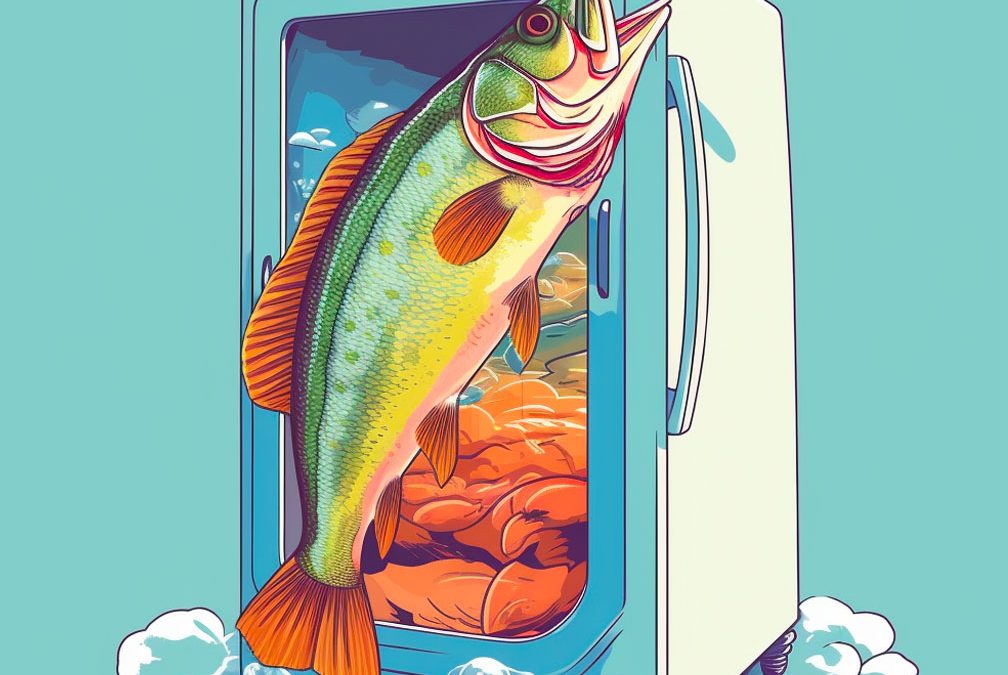Winter fishing can be a challenging experience for many anglers, especially those who are accustomed to the warmer temperatures and more active fish during the rest of the year. During the winter months, anglers often find that bass are less responsive and less likely to bite. This can make winter fishing frustrating for those who are unprepared or unfamiliar with the unique factors that affect bass activity during these months. So, why don’t bass bite in the winter? The answer lies in a combination of factors relating to bass behavior, environmental factors and fishing strategies.
Understanding Bass Behavior in the Winter
To understand why bass may be less active during winter months, it’s important to consider the biology of the fish. Like many cold-blooded animals, bass have a reduced metabolism during the winter months. This means that bass are less active and require less food than they would during the warmer months of the year. In fact, some bass may not feed at all for weeks or even months at a time during the winter season.
Additionally, winter is a critical time in the life cycle of a bass. During winter, male and female bass are preparing for the spring spawning season. In preparation, bass will move from their main feeding areas to shallower water where they can lay their eggs. This can result in a decrease in feeding activity, as the fish prioritize their reproductive needs over their need for food.
Another factor affecting bass behavior during the winter is migration. In colder months, bass may move from their typical feeding areas to deeper water, seeking out warmer temperatures where they can conserve energy. This can make it difficult for anglers to locate and catch bass during the winter season.
Finally, water temperature is a crucial factor in determining bass activity during winter. Bass are cold-blooded animals, meaning they are unable to regulate their body temperature. As the water temperature decreases during winter months, bass may become more sluggish, slowing their metabolism and making them less responsive to lures and bait.
Factors Affecting Bass Activity in the Winter
In addition to bass behavior, there are a number of environmental factors that can affect bass activity during the winter months. Wind and weather conditions, for example, can have a major impact on bass activity. During periods of high winds or extreme cold, bass may be less active as they conserve energy and protect themselves from the elements. Additionally, changes in water clarity and water levels can affect bass activity. Murky or stagnant water can discourage feeding and make it more difficult for bass to locate prey.
The availability of forage is also a critical factor in determining bass activity during winter. In colder months, many of the insects and other prey that bass rely on for food may be less common. This can make it more difficult for bass to find food, and may reduce their feeding activity as a result.
Strategies for Catching Bass in Winter
Despite the challenges of winter fishing, there are a number of strategies that anglers can use to increase their chances of catching bass during the winter months. Choosing the right lures and bait is critical: during colder months, bass are less likely to chase after fast-moving lures and may be more attracted to slow-moving baits such as jigs or live bait. It’s important to select lures and bait that mimic the prey that bass are most likely to be seeking during the winter months, such as minnows or crayfish.
In addition to selecting the right gear, anglers should also be prepared to adjust their fishing techniques to account for the slower activity of bass during the winter months. Rather than relying on fast action or aggressive jigging, anglers may need to take a more patient approach, waiting for the fish to approach their bait and using slow, deliberate movements to entice a bite. Spotting and targeting warmer pockets of water can also increase the chances of catching active fish, as can fishing in areas with plenty of cover or structure, as these areas are more likely to attract feeding fish.
Conclusion
Winter fishing can be a rewarding experience for anglers who are willing to adapt their techniques and strategies to the conditions of the season. Understanding the factors that affect bass behavior during the colder months, from reduced metabolism rates to changes in water clarity, can help anglers choose the right gear and develop effective fishing strategies. By taking a patient and adaptable approach, anglers can increase their chances of catching bass, even during the slow winter months.

